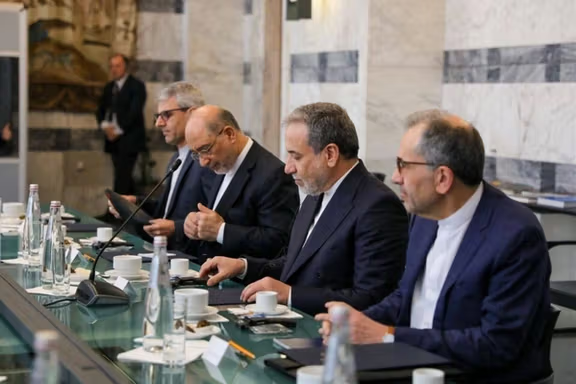Trump expects Iran to resume talks, State Department says

US President Donald Trump expects Iran to return to nuclear negotiations, saying that diplomacy is in Tehran's best interest, according to the State Department Spokeswoman Tammy Bruce.

US President Donald Trump expects Iran to return to nuclear negotiations, saying that diplomacy is in Tehran's best interest, according to the State Department Spokeswoman Tammy Bruce.
“I know that he expects them to begin to negotiate because that's in their best interest,” Bruce said in an interview with Fox News. “He has believed and continues to believe that diplomacy will work here."
Bruce said the US negotiating position has remained consistent throughout, adding, “To negotiate…has been our posture from the start as indicated and led by President Trump.”
The Iranians know what our posture is, she said adding that Trump has shown patience and generosity even in the wake of recent hostilities.
“The fact of the matter is they should be very grateful that President Trump is as generous of a man as he is because of the nature of what's going on in the Middle East,” Bruce said.
Bruce’s comments came the same day independent journalist Laura Rozen reported on X that a senior US official told a source there was “no prospect for the resumption of US-Iran negotiations anytime soon.”
Iranian officials dig in
On Wednesday, Iran’s parliament said negotiations should not resume until preconditions are met, according to a statement carried by state media.
“When the US use negotiations as a tool to deceive Iran and cover up a sudden military attack by the Zionist regime (Israel), talks cannot be conducted as before. Preconditions must be set and no new negotiations can take place until they are fully met,” it said.
Iranian Foreign Minister Abbas Araghchi has previously demanded guarantees against further military attacks.
Last month, Israeli and US forces struck multiple nuclear facilities in Iran, citing concerns over a weapons program.
Iran maintains that its nuclear work is civilian in nature.
Tehran and Washington had conducted five rounds of indirect negotiations through Omani mediation prior to the June strikes, which brought talks to a halt. US demands that Iran cease uranium enrichment but the Iranian officials have repeatedly rejected it.
European pressure builds
Despite Trump’s insistence he is “in no rush” for a deal, the US and three European governments have agreed to push for an agreement by the end of August. If no progress is made, French Foreign Minister Jean-Noel Barrot said Paris, London and Berlin will trigger the UN sanctions snapback mechanism.
The snapback mechanism is part of UN Security Council Resolution 2231, which endorsed the 2015 Joint Comprehensive Plan of Action, or JCPOA. It allows any participant in the nuclear agreement to reimpose sanctions if Iran is deemed non-compliant. If no resolution to maintain sanctions relief is passed within 30 days, all previous UN measures return automatically.